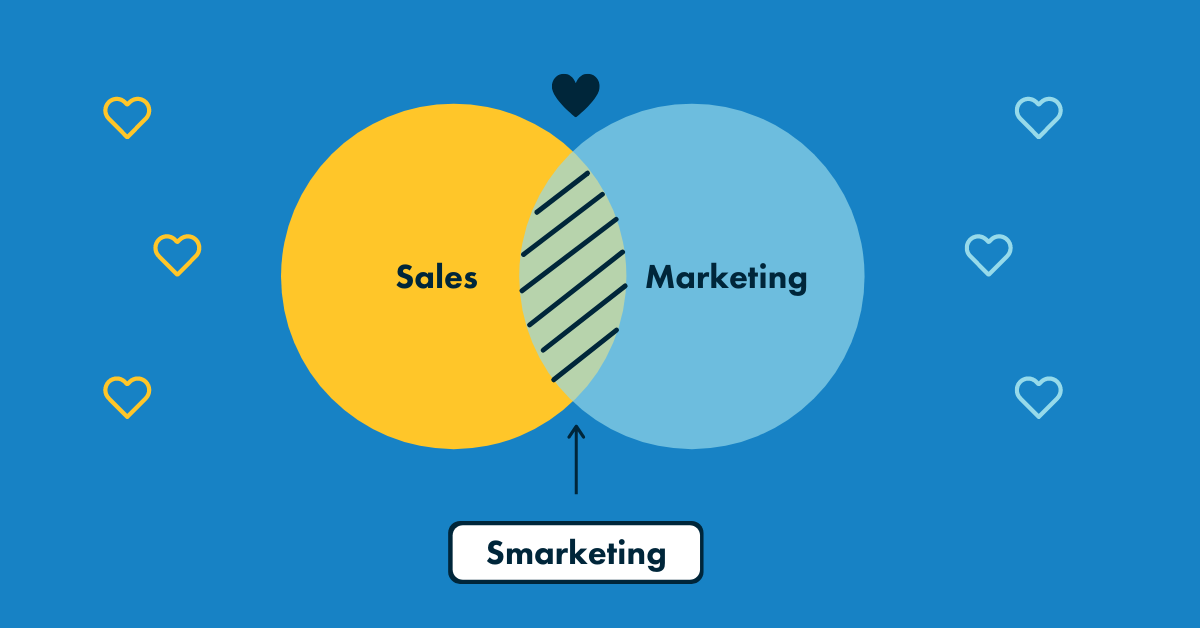10 Benefits of B2B Marketing Automation
There are many reasons why businesses choose to invest in marketing automation.
For many it is simply the ability to bring structure, process and measurement to their marketing efforts; for others it’s more about providing the tools for their marketing team to do the work they already do, but faster and better.
There are a number of specific benefits marketing automation can bring to your business. When evaluating whether marketing automation is for you, it is critical to identify and prioritise the benefits you hope to get from the technology you invest in and exactly how you will see a return.
At a headline level we have identified 10 key benefits that will generate a significant return on investment for most businesses.
1. Identify More Sales Opportunities
Today’s empowered buyers become hyper-informed as they research topics of interest. In doing so they send signals about what they are interested in buying. The content they consume – the social media posts they engage with, the emails they open, the blogs they read, the web pages they visit, the videos they watch and the information they download – tell a story about what they are interested in and how far through their research and into their buying journey they are.Many sales and marketing operations are simply not equipped to receive the signals their potential customers are sending.
In the worst case scenario, buyer behaviour may be screaming, “I’m interested in your product” but your salespeople are effectively deaf.
A marketing automation system understands these signals, scores them appropriately and surfaces more (and better quality) sales opportunities as a result. These opportunities may previously have been invisible. Leads would have not been nurtured. You may never have known the opportunities even existed.
2. Convert More Leads by Nurturing Them on Autopilot
Just because somebody visited your website it doesn’t mean they want to talk to your salespeople. In fact, it’s usually just the opposite. Most buyers do not want to talk to a salesperson until they are good and ready – if at all.
Most marketing automation systems will identify the organisation that has visited your website but not the individual. Hunting the visitor down and calling them before they are ready to engage will usually elicit a very negative response – far more negative than a cold call, in fact. It seems desperate, it feels like stalking and it certainly isn’t classy.
Buyers want to engage on their terms, not yours. The right to engage has to be earned. You have to earn their trust by providing genuine value.
By providing irresistible information in return for the right to correspond, we coax the buyer over the anonymity threshold. By helping them solve their problem rather than pushing our product, we build trust. If we do this well enough we demonstrate expertise, we continue to build trust and when the time is right, we get to engage with a warm, educated prospect who feels we understand them and their problems.
A well-configured marketing automation system can build relationships 24/7 by providing help and advice to your potential customers, understanding what they do and don’t engage with and reacting accordingly.
3. Create a Better End-to-End Customer Experience
Imagine that human resources were not an issue. If you sat down and really thought about how you could delight a customer at every stage of their journey, could you improve what you do for them?
If you could remember to send them helpful information at every step of the journey, could you make them happier? Would guiding your customers to extra advice in various formats (videos, whitepapers, podcasts etc) help them get more from your product or service? Would inviting your customers to webinars and demonstrations of advanced features (once they have mastered the basics) create customers who got more value from your offering?
A marketing automation system remembers to guide every customer to the right content at the right time after every purchase. Quite simply, it helps you to create happier customers.
4. Increase Customer Lifetime Value
The single most important metric in marketing is customer lifetime value. By remembering to follow up every purchase, delighting each customer by offering more value without charge, we pave the way for further sales.
Almost every sale can be followed by another sale if only we remembered to follow up effectively. Most people are not good at this. Salespeople are often interested in big sales and the thrill of the chase, not incremental, supplemental or small sales - yet often this is where the real profit in a relationship really lives. Marketing people know that once we have a customer, it is the recency, frequency and monetary value of further purchases that makes that customer truly profitable.
Marketing automation systems can be programmed to mop up the small-ticket peripheral sales automatically, to educate the customer about the next big purchase they need to make (once they are happy with the first), to cross-sell appropriate related services or to solicit recommendations.
5. Reduce Customer Churn
Marketing automation systems can do more than nurture new leads. One of the most immediate impacts to be made is in reducing customer churn.
Reducing attrition (or increasing retention) by 5% is proven to increase profits by 25-90%. A staggering ROI.
Marketing automation can be used to plan and deliver customer love affairs. How many ways can you find to say “Thank you” to your customers and prove that you actually care about their dreams, their goals and their successes?
By segmenting your database and delivering free, relevant information, beneficial advice, best practice tips – whether or not it means an additional sale for you – you can easily add value and create relationships at very little cost. By continuing to give, you build a deeper relationship and demonstrate you care.
Design a workflow for each customer segment and deliver it relentlessly and automatically using a marketing automation system. With your imagination and the right technology, you could generate a lot of love. Go further than the traditional sales funnel thinking and think about routinely creating raving fans.
6. Make Marketing More Accountable
Marketing budgets can seem to disappear into a black hole. Returns can often be difficult to quantify.
With marketing automation systems in place it’s possible to see what engagement is being created at every stage of the process. You can see your return coming a long way off and what was previously difficult to measure becomes a routine dashboard.
What is the effect of each blog post, social media post, email or download? Is there an ROI? What is it?
Over time, measuring the effect of every element of each campaign means that you can see what works and what doesn’t. This makes it easier to invest more when things are working brilliantly and easier to ask the right questions if they aren’t working so well. This means that lessons learned make each new campaign even more effective.
7. Improving Marketing Return On Investment (ROI)
The discipline of planning, reporting and learning about marketing brings science to bear on what was once thought to be a purely creative space. Numbers don’t lie.
Not only does a marketing automation system make marketing more accountable, it offers a number of possibilities for significantly improving marketing ROI.
The helicopter view of your processes helps you to understand where bottlenecks and problems occur so they can be fixed.
Split-testing enables each step of the process to be refined. A small improvement at every stage of any process compounds to a huge improvement in the bottom line.
Speed of follow-up is critical to sales success – online sales leads have a very short life – according to Harvard Business Review. Responding to an online enquiry inside an hour makes it 60 times (yes, 60) times more likely that you will qualify a lead than waiting 24 hours or more to respond. Marketing automation makes responses automatic and instant.
Improving both lead conversion rates and lead conversion times can be a staggering combination. If you close 20% more of your leads because marketing automation helps you nurture more of them to the point of engagement and you reduce your conversion time by 20% (because marketing automation produces warmer, better leads) the overall compound effect is to boost monthly sales by 44%.
8. Make Your Marketing Scalable
Content marketing and marketing automation is a scalable practice. The more great content you invest in, the better the results. The returns are not linear – over time they become exponential in the same way that being first place in search results is exponentially better than being on page 2.
The other big benefit is the ability to automate routine communications. This means your marketing team can communicate more regularly with more people.
Campaigns build upon each other. Once an automated campaign is in place it runs relentlessly whilst you build the next. Pretty soon you have lots of campaigns running automatically 24/7. Your team is producing more work than was previously deemed possible. You have effectively scaled the output of your marketing team.
Marketing automation makes your team more efficient and more effective.
9. Bringing Science, Structure and Process To The Art Of Marketing
Since the birth of the internet, customer buying behaviour has changed radically – the research they do is far more digital than analogue. Just as customers use digital methods to research and buy, sellers who evolve to become more digitally savvy can engage more effectively with these buyers and do so in more measurable ways.
Too many business owners see marketing as a black art they don’t understand. Marketing is a process and the more digital that process becomes, the more easily we can measure results.
There will always be an element of art and inspiration in marketing. Finding elegant solutions to communication problems is a creative process but we have to be able to measure how well these initiatives work.
Modern marketing involves workflows and processes as much as mood boards and concepts – because in business if we can't measure it, we can’t manage it.
Marketing automation provides structure, process and science that measure the effect of your creative efforts. Success in digital is about testing and measuring. Beautiful creative has its place but ultimately it is what works that matters. Marketing automation is a bullshit-free zone.
10. Give Your Marketing Team A Competitive Toolkit
If you are serious about your B2B marketing then you have to be serious about digital marketing. If you are serious about digital marketing, then you have to examine how marketing automation can help your team to achieve more.
If you are asking your team to go to war armed with catapults against competitors armed machine guns then you are going to need a very, very big team.
The days of using a dozen or more different applications to manage marketing are over. It’s inefficient, it’s time consuming, it’s frustrating and it just doesn’t work well enough.
Marketing automation makes your team more competitive by:
-
providing a single, joined-up system with a single source of accurate and consistent marketing and customer data
-
providing a single, consistent interface for the user and (ideally) a single toolkit to manage the entire marketing process
-
defining workflows and automating processes to improve a better end-to-end customer experience and reduce sales costs (which becomes exponentially simpler, faster and more effective as you reduce the number of systems involved).
Ultimately your business needs the best talent and the best tools. Today, the best millennial marketing talent will simply not tolerate working for employers with outdated marketing technology. Marketing automation is becoming the new normal in the way that smart people manage their ever-more-digital marketing.
Summary
In evaluating where the benefits of marketing automation might lie for your business it's time to ask yourself, is there scope to:
-
Identify more sales opportunities by better understanding what content our customers consume?
-
Convert more leads by nurturing more effectively those not yet ready to buy?
-
Create an improved end-to-end customer experience by adding more value automatically?
-
Increase customer lifetime value by using automation to follow up every sale?
-
Reduce customer churn and increase profits simply by helping customers more?
-
Make marketing more accountable for the investment in creating content?
-
Improve marketing ROI by understanding and refining processes in order to respond faster and better to customer enquiries?
-
Scale marketing by investing in superior content and communicating with customers more frequently?
-
Develop an impressive marketing system by bringing in more science, structure and processes?
-
Give your marketing team improved tools to focus on specific business outcomes and demonstrate a clear ROI?
What Next?
For more about marketing automation and the inbound methodology, may we recommend you download our introductory whitepaper?





